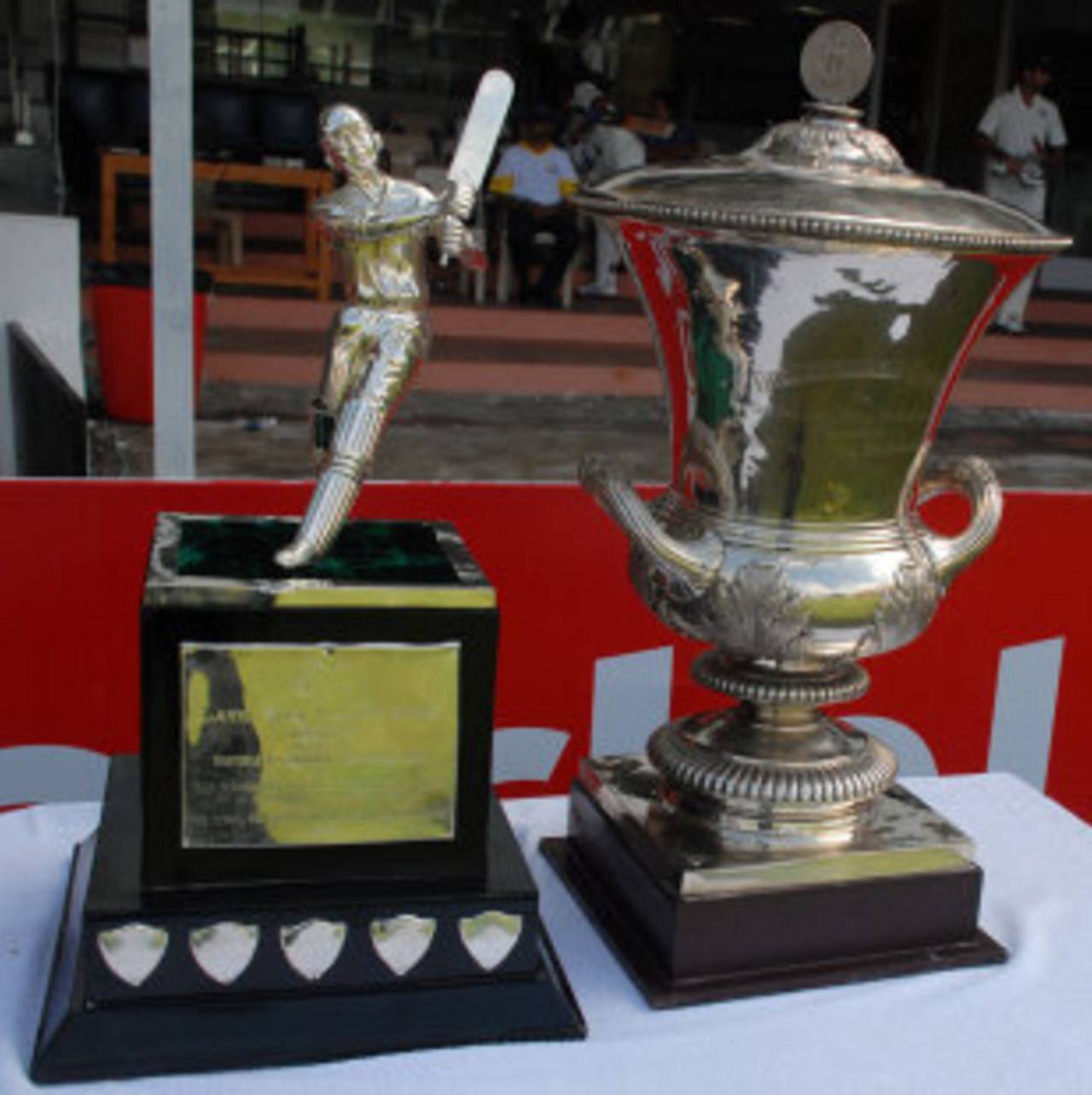The last time the Duleep Trophy was shared, before this year's edition, was 16 years ago when the
1997-98 final between West Zone and Central Zone in Chennai lost three days of play due to rain. The common strands between then and now are the weather and the four-match format of the tournament.
However, the significance of the tournament to India's domestic calendar has changed. Sixteen years ago, the Duleep Trophy was the last hurdle on the domestic circuit to earning a national call-up. In 2013, the tournament is struggling to find a slot in the domestic calendar that allows at least the zonal stars to participate. The tournament has clashed with the Champions League T20 for the last few years, and had the status of the Duleep Trophy not devalued, it would have seen domestic stars in whites rather than the coloured clothing of their franchise.
In such a scenario, one of the semi-finals this year was
decided by a coin toss, followed by a
final that saw just 10 overs played over five days - the last thing the tournament, already in the midst of an identity crisis, needed.
Amay Khurasiya, who led Central Zone in that final 16 years ago, feels it's time to realise the declining worth of the Duleep Trophy.
"If there are so many avenues for a person to get selected for India, then some avenues are going to dip in terms of significance," Khurasiya, who is now the director of Madhya Pradesh Cricket Association's academy, told ESPNcricinfo.
The Champions League matches were mostly held in cities that were unaffected by rain. A match scheduled to be held in Ahmedabad was
moved to Jaipur following heavy rain. Yet that facility was not extended to the Duleep Trophy final that was held at the same venue where, 72 hours earlier, the semi-final had been washed out.
Ratnakar Shetty, the BCCI's general manager - game development, told Mumbai Mirror that October was the only slot available and the tournament could only be held in the southern part of India because other venues around the country were involved with the Champions League or the India-Australia series.
TC Mathew, the Kerala Cricket Association president who is also a member of the BCCI's senior tournament committee, also cited the same reasons.
"First and foremost, we must understand that the rains were expected to subside in October," Mathew said. "And it wasn't raining every day, so the question of informing the Board of our (KCA) inability to host the final after the semi-final disaster didn't arise.
"At the same time, I don't think the Board was in a position to shift the final at the eleventh hour because of the volume of cricket played around the country. At the end of the day, when Kerala has seen rains more than 180% of the average annual rainfall, despite putting in all the possible human effort, we couldn't have more than 10 overs in the game."
The BCCI finds itself in a conundrum of scheduling too many tournaments in limited span of time, with recent additions such as the Corporate Trophy, IPL, Champions League and the Syed Mushtaq Ali Trophy. With a prolonged Ranji trophy, which now assures each team of at least eight games per season, there are questions over whether the BCCI should let go of the Duleep Trophy that, until recently, used to be a marquee event. Khurasiya isn't averse to the idea.
"In an era when a four-over spell or an eight- or ten-over burst with the bat can catapult a youngster into the national team, Duleep Trophy has almost lost its value," Khurasiya said. "Nothing lasts forever. With times everything changes.
"You need to have vision. If something's not worth it, you better not continue with it. No doubt plenty of avenues have been created for cricketers to get noticed. At the same time, too much of cricket is also not good if it's affecting the quality. And I suppose the quality is being affected these days."
Amol Karhadkar is a correspondent at ESPNcricinfo
